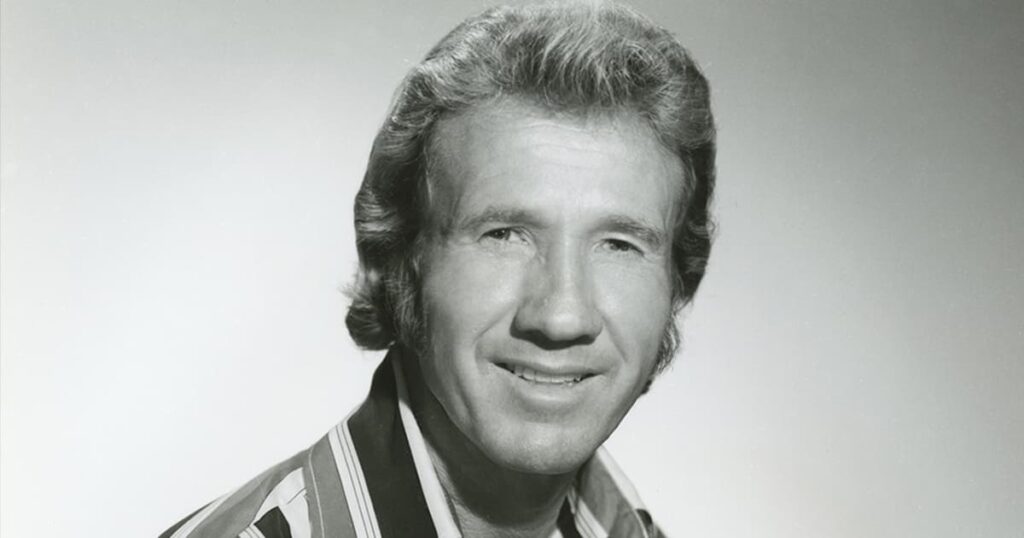
A heartbreaking reflection on the betrayal felt when tender pledges prove to be nothing more than beautiful, meaningless chatter.
There are certain songs that don’t just ask you to listen—they invite you to sit down, stay a while, and live inside a moment of universal, deeply felt sorrow. For those of us who came of age when the Grand Ole Opry still felt like the beating heart of America, that special, melancholic kinship can be found perfectly preserved in Marty Robbins‘ timeless lament, “Pretty Words.”
Released in 1956 on Columbia Records, this gentle yet devastating track wasn’t one of the chart-topping, genre-defining smashes like “El Paso” that would later make Robbins a household name. In a time when the Country and Western charts were a fierce battleground of heartache and swagger, “Pretty Words” didn’t make a significant dent on the major national charts of the day, proving that sometimes, the most profoundly moving music is found on the quieter, less-traveled B-sides of our memory. Its importance lies not in its peak chart position, but in its profound resonance with the millions who’ve lived long enough to know the sting of sweet deception. The song appeared on his album Rock’n Rollin’ Robbins the same year, a collection showcasing the versatility of an artist who moved effortlessly between hard country, pop, and western balladry.
The genius of Marty Robbins was his ability to tap into the foundational narratives of the common man. The story behind “Pretty Words” is one as old as courtship itself: a simple, earnest man is beguiled, then ultimately shattered, by the smooth talk and flowery language of a lover whose depth of feeling simply does not match the poetry of her speech. The song’s narrator recounts a cascade of beautiful phrases—”I love you,” “I need you,” “forever and a day”—each one delivered with an irresistible sincerity. Yet, as the relationship unravels, he comes to the crushing realization that these pronouncements were hollow, a charming performance designed to win his heart, not reflect her soul. The song is a quiet testament to the enduring agony of emotional fraud.
The meaning of “Pretty Words” is a powerful, clear-eyed critique of superficiality in love. It is the wisdom gained at the expense of innocence. For an older generation, it’s a reflective sigh for youthful mistakes, a painful recognition that eloquence does not equal honesty. The lyric’s heart lies in the narrator’s acceptance of his own foolishness: he admits, without bitterness, that he was simply “a fool” to believe the beautiful rhetoric. This isn’t a song of anger; it is a song of sorrowful self-reproach, a quiet understanding that he was undone by his own yearning for the truth he heard in her lovely lies. He concludes that her words were nothing more than “pretty words,” delivered perfectly but carrying no weight, like the sound of a distant bell that fades before you can trace its source.
Robbins delivers the song with his signature clarity—a tenor voice that was both impeccably smooth and profoundly honest. The arrangement is sparse and deliberate, allowing the focus to remain squarely on the narrative and the raw vulnerability in his voice. It’s the kind of performance that evokes an era when a country song was a miniature play, acted out across three minutes of vinyl. Listening to it now, you can almost see the dust motes dancing in the late afternoon sun of a long-ago room, hear the gentle, mournful steel guitar weeping in the background, mirroring the narrator’s shattered hope. This song is a cherished artifact of 1950s Country music, not because it dominated the airwaves, but because it perfectly articulated a universal heartache—the moment we realize that love’s most charming promises can be its cruelest illusions. It is a beautiful, necessary ache.